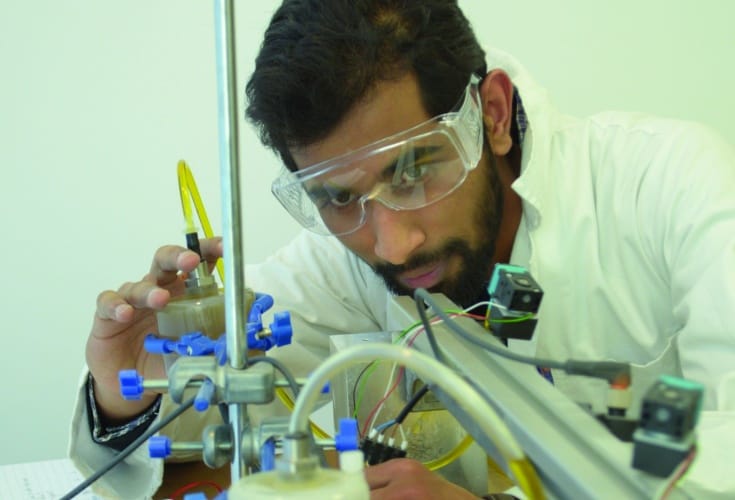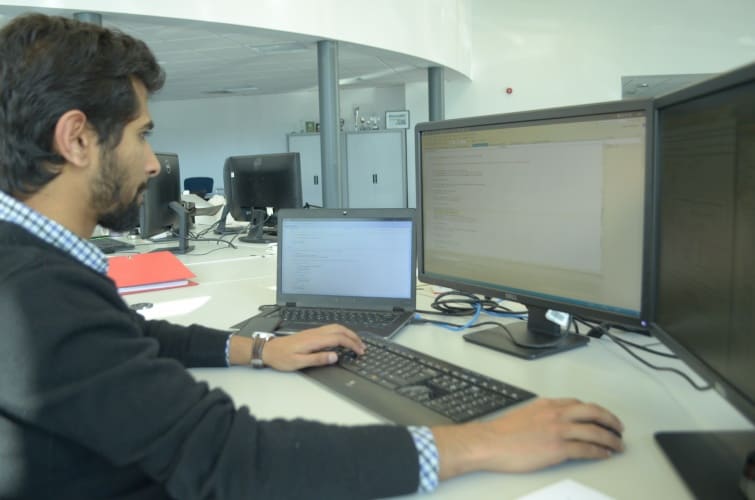
A much talked-about shortage of engineers doesn’t guarantee you’ll walk straight out of university into a graduate job. And if you’re trying to break into a competitive industry like motorsport, finding a suitable role can be a particular struggle.
Six months after he’d finished his master’s in motorsport engineering at Oxford Brookes University, Vignesh Viswanath was considering going back to India. Even with work experience placements at an automotive manufacturer and a research institution on his CV, he was battling just to get a job interview.
‘I was doing retail jobs just to pay the bills,’ he says. ‘It’s very demotivating and a grind. Every day you apply for jobs and most of the time you don’t even hear back.’
Vinny knew he couldn’t just focus on the big F1 teams so he began writing to as many firms in the industry supply chain as he could, looking at companies supporting the other ranks of motorsport. His breakthrough came while using LinkedIn to look for potential employers when he came across co-founder of KW Motorsport, Kieron Salter.

The veteran engineer accepted an invitation to connect on the social network and Vinny wrote a letter offering his skills. Shortly after, sister company KW Special Projects advertised a graduate role and Vinny wrote again, this time being rewarded with a job offer.
Today, he is an automation and controls engineer for the company, which specialises in adapting motorsport innovations for other industries, from aerospace to pharmaceuticals.
As a small company, KWSP has given Vinny the chance to play an important role in a variety of projects. His first tasks were designing the casing and developing software for a medical printer. Three years later his current position is as project engineer for a wind tunnel technology targeted at the professional sports industry.
‘Doing different projects in different fields means we have to take on other things and adapt,’ he says. ‘That’s part of why I like working here. It’s very varied and not everyday is the same. You don’t just finish a project and go back and do the same thing again. The whole thing is different.

‘If I’m doing a project work I’ll be creating specifications, talking to our design engineers, writing documentation or doing research into how to solve the problem in a more efficient way. If it’s not so busy I can be doing training, learning new skills depending on what projects we have in the pipeline.’
His experience of job hunting means Vinny has a clear message for engineering students. ‘You need to be persistent and not give up. Starting your job search early while you’re in uni helps quite a lot – it doesn’t matter if you don’t have your final grade.
‘Getting real work and hands-on experience is very helpful. A placement year gives you a good feel of what the day-to-day job is like not just the glamour of the industry. In motorsport it’s great to be working with the race team and travelling to all sorts of places but the other side of it is coping with jet lag and coming to work the next day.’
For more student careers news and advice follow us:



Red Bull makes hydrogen fuel cell play with AVL
Surely EVs are the best solution for motor sports and for weight / performance dispense with the battery altogether by introducing paired conductors...